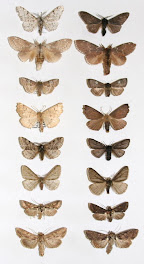But tryptophan can't get to the human brain in large amounts when ingested as part of a massive Thanksgiving feast—it needs an empty stomach.
"Tryptophan is taken to the brain by an active transport system shared by a number of other amino acids [the chief components of proteins], and there's competition among them—like a crowd of people trying to get through a revolving door," said Simon Young, a neurochemist at McGill University in Montreal, Canada.
Consuming tryptophan-rich foods may cause blood levels of the amino acid to rise. But not enough tryptophan will reach the brain to have a sedative affect.
"Brain levels of tryptophan could even go down after a big meal because of the [amino acid] competition," Young said.
Apparently, even the amount of Tryptophan in turkey has been overstated:
Turkey isn't even unusually high in tryptophan. Many foods, such as beef or soybeans, boast higher concentrations.
So, why the need for a nap?
The slumber may be caused by the stressful hustle and bustle of the holidays, alcohol consumption, and the massive caloric intake of the year's biggest feast.
"There have been many studies citing a post-lunch dip in performance, from factory output to single-car accidents," McGill's Young explained.
"These things tend to peak in the early afternoon. A thousand-calorie lunch causes a sedative effect that a smaller meal doesn't have."
So the next time you slip into a coma on Thanksgiving day, don't malign the Turkey. Jest fess up and say "My relatives are stressing me out and I drank to much!"
Added Later: RPM at Evolgenexplains some genetics connected with tryptophan.








